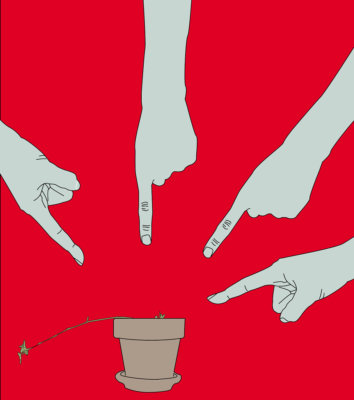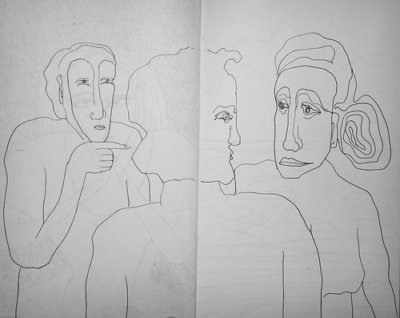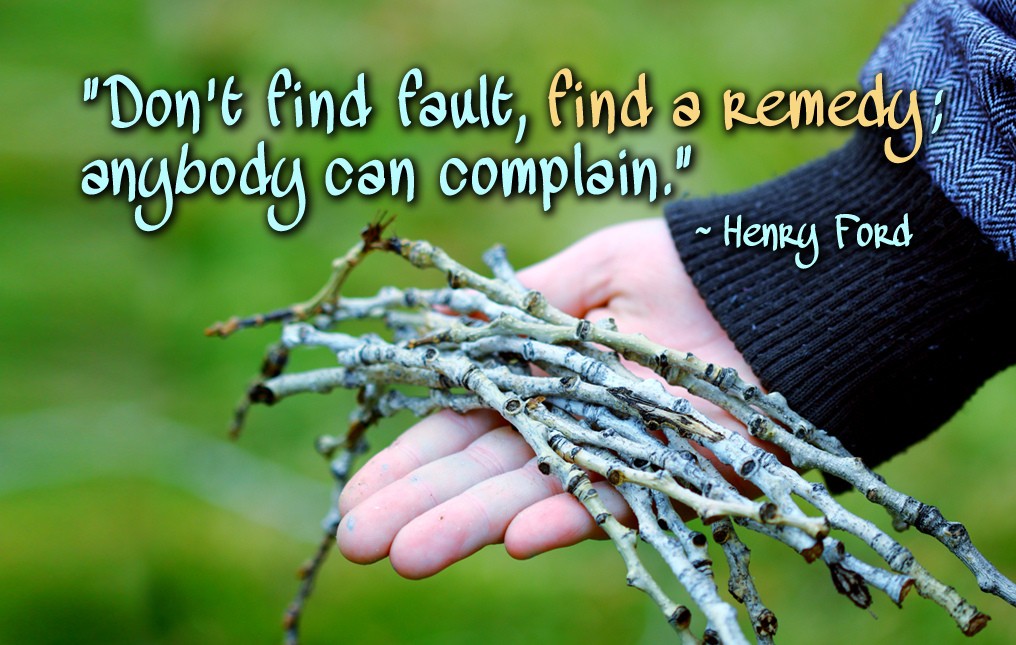Why do We Blame? And Does Therapy Make You Blame Others?
 Curious to try therapy, but worried it just involves finding a way to others? Which you don’t feel comfortable with, or feel you already do too much of?
Curious to try therapy, but worried it just involves finding a way to others? Which you don’t feel comfortable with, or feel you already do too much of?
Why do we blame others?
What are the psychological reasons we so quickly fall into blaming?
1. Blame is easy.
Blame divides things into two camps – I’m right, you’re wrong. Blaming satisfies the brain’s desire for the fastest solution and feeds the human tendency to be lazy. Why carefully look at myriad shades of grey when you can quickly choose black or white, right? All good, until our conscious kicks in…
2. Blame can be an outlet for built up rage.
Once upon a time, according to the Flintstones, we were cave men with bats we could swing around when upset. The world has moved on, but not to the point we still don’t encounter things that upset us. Now that carrying a wooden weapon is not the done thing, the tactic many of us employ to deal with our upset is to internalise and repress our anger. Of course there’s only so much we can keep down and for only so long, so when our unconscious spots an outlet to unload unwanted emotions, it’s going to want to take it. Blame acts as that outlet. We can a punish someone else for how bad we feel and get rid of all our backed up anger. Effective? Maybe. Healthy and fair? Absolutely not.

By: Yuliya Nemova
3. Blame brings instant relief.
Not only can blame be an outlet for pent up rage, it can also help us avoid a myriad of other uncomfortable feelings. Guilt, for example. Say we actually have done something a tiny bit wrong, but someone else did a lot wrong . We can assuage our guilt by blaming them. So if we woke up grumpy and are not terribly civil to our partner over breakfast, but they then had a tantrum and threw coffee on us, we can blame them for the entire morning and our guilt at being standoffish is instantly cleansed. Convenient, isn’t it? We go from the perpetrator to the victim blaming another. Which leads right to the next point.
4. Blame is a means to avoid having to take responsibility.
Reproach and recrimination often boil down to a defensive manoeuvre to protect ourselves. If it’s all your fault, then I don’t need to think about whether or how I contributed to the dilemma we are facing.
Of course using blame as a way of letting go of our pent up emotions, just because it’s easy and leads to us feeling temporarily better, is not going to get us anywhere fast...
If anything blame just leaves us feeling bad, which triggers another cycle of blame, and on it goes. Until some of us consider therapy as a way to stop the cycle and take responsibility for our lives.
“But wait a minute…” comes the protest. “Doesn’t therapy just mean you pay a lot of money so some doctor something-or-other can encourage you to blame all your problems on your family?”
“All therapy does is make you blame others”
Not only are we a culture prone to blaming, we are also a culture prone to avoiding things we don’t understand. And one of the things many of us don’t understand is counselling and psychotherapy. Our main mode of dealing with things when we don’t understand them is to pick a generalisation, an idea that is not based on fact but takes a very strong one-sided view, and stick with that. The main generalisation you’ll hear about therapy is ‘all therapy does is encourage you to blame your parents’.
Is it true? Does therapy make you blame everyone, most of all your family? The answer is a firm no. Not at all. A proper therapist does help you navigate your desire to blame and help you examine your experience of growing up. But the point of therapy is not to blame.
If not blame, what does therapy teach instead?
What is the point, then? What are the key concepts behind therapy? Let’s take a look.
 Responsibility
Responsibility
Whereas blaming creates victims, counselling aims at empowerment. Therapy asks clients, “What can you do now to shape your future – in spite of what you might have suffered in the past?” So no, it’s not about blaming your parents and feeling sorry for yourself, it’s about taking responsibility for the life you are creating.
Understanding
Blame excludes attempts at understanding. Psychotherapy, on the other hand, is constructed on curiosity. It is a space for inquiry rather than inquisition. Counselling unfolds in a non-judgemental environment, which can in itself feel terrifically liberating. It encourages us to look at the world not in terms of what is right and wrong, but in terms of why. If we can work out why things happen, then we’ll be in a better position to shift the way we relate to family, friends and colleagues.
Uncertainty
At the same time, therapy recognises that it is not possible to understand (let alone solve) everything, especially when it comes to the complex world of emotions and relationships. In fact, one of the aims of counselling is to help clients tolerate not knowing why things happen rather than seeking shelter in certainty or conviction. The poet Keats elegantly called this “being content with half knowledge”.
Moving away from blaming others
The world is slow to change. It’s a sure bet that, this time next year, we will be reading the same type of blame-fuelled headlines in the newspapers and we will still live in a blame culture. But you are in charge of your life, and it is something you can choose to change. Therapy can help create a spirit of understanding and responsibility in your personal relationships in place of blame and guilt.
Has this article inspired a thought you’d like to share? Or a question you’d like to ask? Use the comment box below – we love hearing from you.





I am sure counselling has a value if practiced by competent people. But it really doesn’t take much to go on some Mickey Mouse course and become a councillor. The incentive could be to make money by retaining clients for as long as possible, and probably often is just that.
Regards e
Hi there. There aren’t actually any ‘Mickey Mouse courses” to be a counsellor. It’s at minimum a three year commitment in the UK followed by a year of being a trainee. There are of course people who claim they are counsellors who aren’t, but it’s up to you as a client to do due diligence and look at your therapist’s training and credentials. We aren’t sure why you ended up at this article, did you have a bad experience? Or just angry as someone you know is in therapy and changing in ways that you don’t like?